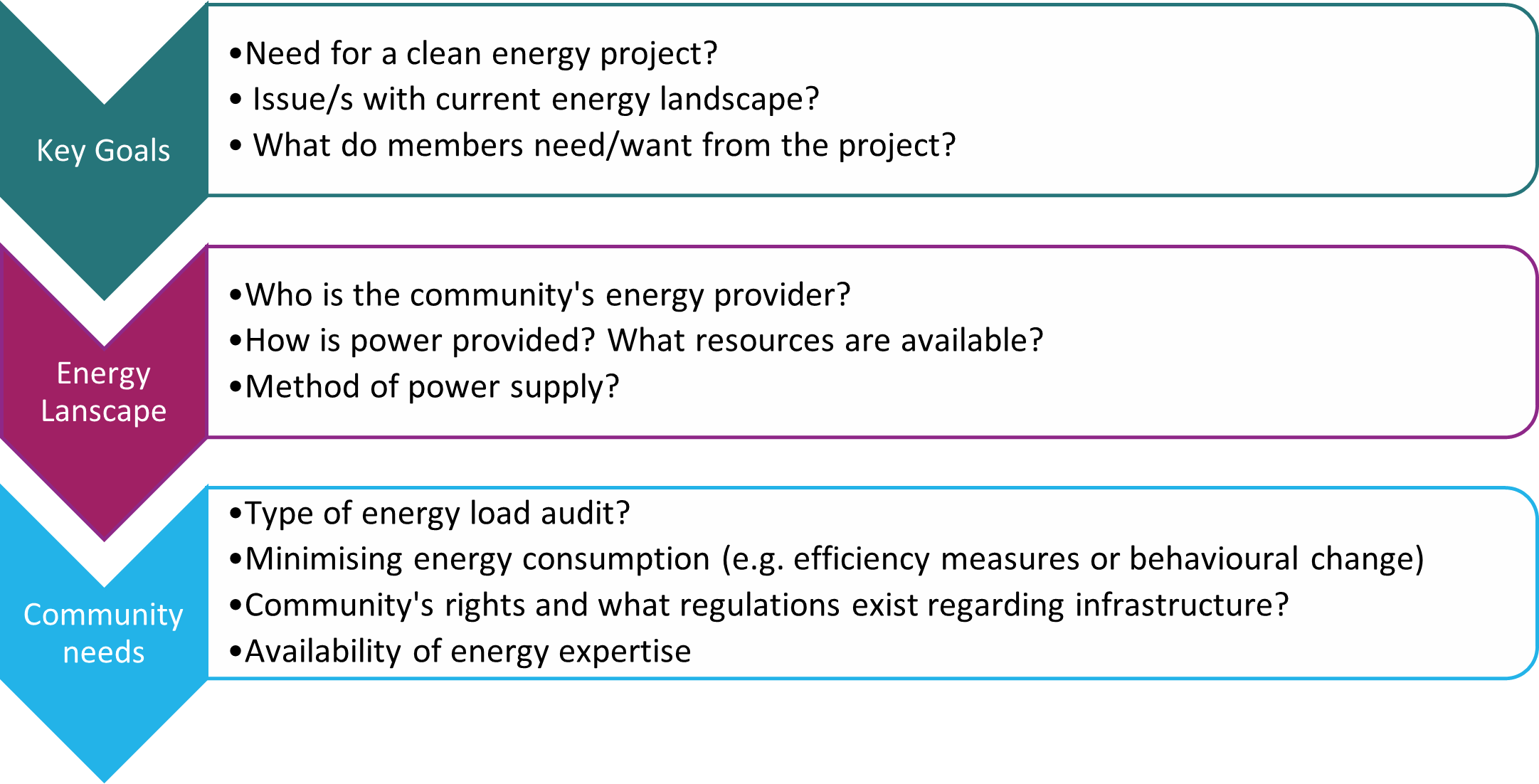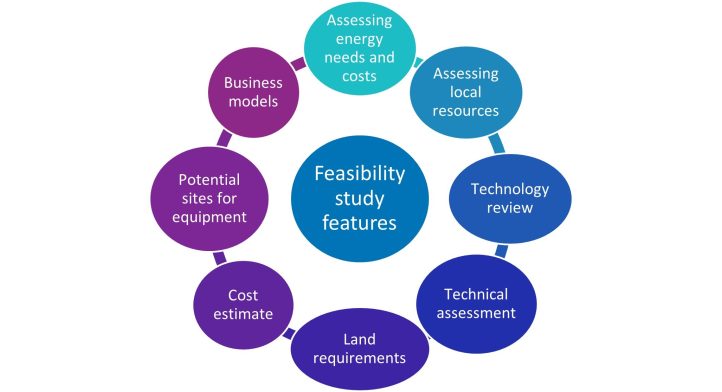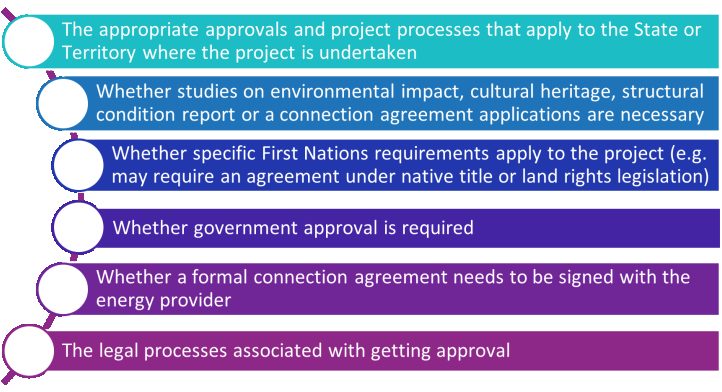Renewable energy in First Nations communities
There has been a global transition in recent years away from non-renewable energy in favour of generating power from natural resources such as the sun, wind and waters. Affordable, reliable and sustainable power is not yet a reality for many First Nations communities. The First Nations Clean Energy Network’s Community Energy Planning Toolkit (Toolkit) serves as a best practice guide to assist First Nations to plan and develop a clean energy project tailored towards specific community needs.
Seven-step framework
The Toolkit provides a seven-step framework for working with your community to develop, design, fund, implement and monitor a clean energy project catered towards the needs of the specific community.
1. Idea
The Idea Stage requires communities to consider the following:
The community should also consider which community members will be involved in their clean energy project and the roles that each member will take. It may also be beneficial to run a renewable energy planning session to encourage discussions around the above questions.

2. Plan
The Plan Stage requires the community to produce a Community Energy Plan. This plan will need to identify the:
- scope;
- program;
- costs; and
- the project team that will manage it.
In order to develop the Community Energy Plan, the community will need to assess its current and future energy needs by considering:
- the current energy environment;
- types of energy systems which the community is considering implementing;
- funding, management, governance and general project considerations;
- opportunities and barriers to the project;
- project readiness – e.g. funding and community capacity;
- need for referral for contractors;
- who will make project-related decisions;
- what resources be required; and
- who will manage the project.
3. Feasibility and Design
This stage requires the community to consider the design options and their feasibility by undertaking a feasibility study.
A feasibility study helps:
- assess the technology options and system sizes;
- evaluate the costs of development; and
- propose a viable business and ownership models.

4. Seeking financing
The Toolkit provides a number of suggestions for methods of seeking finance. Our team of experienced commercial lawyers can provide expert assistance with structuring financial models.
5. Seek approvals
The Seeking Approvals Stage requires the community to consider the different legal and regulatory processes which need to be undertaken considering the size of the project, including:

6. Build
Once the project is supported by a solid business foundation and financing is arranged, the next stage is building the project.
The Toolkit provides a number of suggestions for different avenues for a community to undertake to build their project. Our team of experienced commercial lawyers can provide expert assistance with the legal elements of the building phase of the project.
7. Monitor
The final stage of the process involves monitoring the energy project’s performance throughout its lifetime.
Monitoring technology can provide real time data on the amount of power being generated and used. Importantly, this data can be used to adapt and evolve the energy project to the changing needs of the community.
Community participation
To ensure the continued success of the energy project, the Toolkit recommends promoting community engagement and participation at every stage of the process, from the idea to the monitoring stage. Being open and transparent within the community will help build trust and promote collaboration, helping create a more successful energy project.
Some options for increasing community engagement include:
- using social media to update and posting photos of the stages;
- arranging workshops to make sure everyone is informed and on board;
- organising consultations with community members;
- creating handouts, brochures or newsletters;
- actively seeking out suggestions and recommendations from community members by conducting surveys; and
- highlighting job opportunities and providing relevant training.
Marlinja Community Solar Project
One example of a successful community energy project is the Marlinja Community Solar Centre.
In 2021, the residents of the Marlinja outstation in the Barkly region of the Northern Territory undertook a project to install a solar microgrid which would use renewable energy to power the community, replacing the previously used high cost and environmentally-damaging diesel. Since its instalment, the microgrid has significantly reduced the cost of electricity for residents and now powers between 16,000 – 17,000 houses in the Barkly region.
The success of the project not only comes from the microgrid’s efficiency, but from the community’s engagement and willingness to accept the change. The project has also created significant employment opportunities for Indigenous people within the community.
The Marlinja Community Solar Project is the first ever 100% Indigenous community-led and owned energy initiative in Australia and many have remarked that it has helped “put Marlinja on the map”.
Assistance from Jackson McDonald
Jackson McDonald’s experienced team can help you navigate the legal issues which may arise in developing and designing a clean energy project catered towards the unique needs of your community.
If you would like more information or assistance, please contact Emma Chinnery or Liam McLagan.